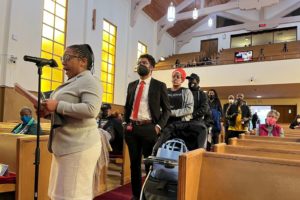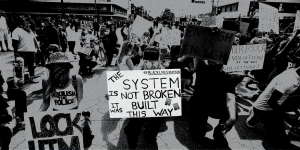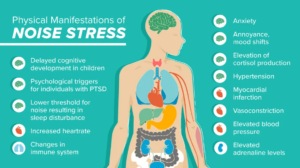“The generation of minding your own business is a thing of the past — we want more for our children.”
Dawn Tyree, 51, didn’t have much of a childhood.
At 11, she says she was encouraged by her father and step-mother to spend time with a man 19 years her senior.
The man started to “groom” her, she says, giving her adult responsibilities, like driving a car, to make her feel older.
The man impregnated her with her first child at 13. He was 32.
“The solution was marriage,” Tyree tells TODAY.com. “Marriage covers up the rape, the sex abuse and the child endangerment.”
“The marriage saved him from a prison sentence,” she adds, “and essentially put me in a prison.”
In 1985, Tyree finished sixth grade. That summer, she was married.
“As minors, we can’t do anything about it,” Tyree explains. “It was a confusing time. It is brainwashing — call it what it is.”
As recently as 2017, child marriage — what Child USA and UNICEF define as “any formal marriage or informal union between a child under the age of 18 and an adult or another child”— was legal in all 50 states, according to Unchained At Last, an organization dedicated to ending forced and child marriage.
Currently, only seven states ban the practice with no exceptions. One 2021 study found that 300,000 minors under the age of 18 were legally married in the U.S. between 2000 and 2018.
“It would’ve been really nice, if one adult out of the 30 adults in my life might have had the courage to stand up and say something,” Tyree says. “The generation of minding your own business is a thing of the past — we want more for our children.”
‘I was genuinely terrified of giving birth’
At 13 years old, Tyree says she was “afraid of dying during childbirth.”
“Not because anyone had told me it was a possibility,” she adds.”It was because I was genuinely terrified of giving birth.”
Children giving birth face higher risks of eclampsia, puerperal endometritis and systemic infections, according to the World Health Organization. The American Academy of Pediatrics has condemned child marriage, citing increased risk of sexually transmitted infections, early pregnancies and intimate partner violence.
“I was in and out of consciousness when I was giving birth to my first child,” Tyree explains. “I now realize that likely my life was in danger.”
Being a 13-year-old with a husband and a child was “all she knew,” Tyree says, so she tried to “make the most of my circumstances.”
“I learned at 14 that I was pregnant again,” she shares. “It was a hard pill to swallow — it put a little lump in my throat. But I lived through the first birth, so I just reassured myself: ‘You’re going to be OK. You can do this.’ Then I had my daughter.”
Now a mother of two, Tyree says she lived in a “weird limbo” where the adults in her life didn’t “want to engage with her” but also made it clear they “didn’t want me interacting with their children.”
“I can remember these different times during my childhood marriage where I wished that the person who seemed genuinely concerned would’ve asked if I was OK,” she says. “I wish someone would’ve saved us. I wish they would’ve picked up the phone. But the truth is, even if they wanted to, after the marriage there was nothing they could do.”
“It was a legally binding contract,” she adds. “Basically, my husband owned me.”
‘I escaped without a plan’
At 16, Tyree found out she was pregnant for a third time. This time, she says, everything felt different.
“I became concerned about sexual abuse directed towards my children,” she explains. “So after my daughter was born, I began to try to plan a way out. When I became pregnant again, I felt very trapped, so I made the decision to terminate the pregnancy and I escaped without a plan.”
Start Your Day With Us Today, Every Day!
We’re bringing you the latest in news, pop culture, wellness, parenting, shopping and more with our TODAY newsletters. Join us!
With a 2-year-old and 1-year-old in tow, Tyree went to a women’s shelter — she says she was turned away because she was a minor.
“A social worked told me to go back to my parents, because they were ‘responsible for me,’ but I was emancipated,” she adds. “But if I was emancipated, why was my husband reporting me as a runaway? It was a road no one should have to navigate.”
Rima Nashashibi, president of Global Hope 365, a nonprofit organization focused on ending child marriage and human trafficking, says it’s common for homeless youth to be turned away from adult shelters.
“When they go to an abused women’s shelter, they’re turned away because they’re minors and a liability,” Nashahibi tells TODAY.com. “They can’t go to a runaway shelter because they’re married and have kids. So some of them end up on the street.”
With nowhere to turn, Tyree says at 16 she was homeless.
“I had to separate our family unit, because my children deserve to be housed and fed, so they went with their paternal grandparents and I tried to get my feet on the ground,” she explains. “Once I found a roommate situation, I took my kids back.”
Tyree says she had to wait until she was 18 to finalize her divorce, win custody of her children and start to rebuild her life.
“The courts, even in these grotesque marriages, these egregious acts toward children, favor the adult,” she explains. “My first real job was assembling bicycles at Toys R Us. That is how I paid rent for our one bedroom in a little house.”
It wasn’t until her own children were in their 20s, Tyree says, that she was finally able to breathe a sigh of relief.
“I don’t live in fear of losing my kids anymore,” she says. “I’ve done it — I kept us safe. They’re adults now.”
‘I’m speaking for those who are silenced ‘
Tyree now dedicates her life to ending child marriage in the United States, testifying in state committees across the country as she pushes for state and federal bills that will outlaw the practice.
“It’s no longer about me,” she says. “I can remove all of my trauma and show up for the other 13-year-old brides. I’m speaking for those who are silenced — for those who don’t have a voice.”
Countries across the world, including the United States, have pledged to end child marriage by 2030 as part of 17 new United Nations Sustainable Development Goals.
Yet advocates like Tyree and Nashashibi say they have experienced significant pushback at both the state and federal level.
The “Child Marriage Prevention Act” was introduced in Congress on Jan. 19, 2018, but did not receive a vote and died in the 115th Congress.
“Federal elected officials will say this is a state issue,” Nashahibi explains. “So we’re meeting with elected officials on the state level. We still have 43 states to go, which is why a federal law that says ‘no child marriage under 18, no exceptions’ — we need to own it. If we’re going to be a world leader we need to act like one, in all aspects.”
Indonesia outlawed child marriage in 2019. In Iraq, Jordan, Morocco and Algeria, the minimum age to be legally married is 18.
Additional issues advocates face are “freedom of religion” arguments and educating the public on the problem itself. According to one 2020 survey, nearly half of all Americans believe that child marriage is already illegal in the United States.
“People need to get involved,” Nashahibi says. “And we need to amplify the voices of survivors.”
In addition to starting a digital letter writing campaign and requesting a personalized resolution for a specific city or county, Nashahibi says it’s important for parents to speak openly with their children.
“Parents can’t put their heads in the sand and say, ‘This is not going to happen to our kids,” she says. “Have an honest discussion about your religion, abstention or safe sex. Talk about what’s a healthy relationship, what is allowed and what’s not allowed, and how to respect your own body.”
As Tyree continues to work to eradicate the type of marriage that stole her childhood from her, she says she has a message for the victims living that reality right now:
“There are people out here aware of these circumstances that feel so lonely and isolating,” she says. “We’re fighting for you. Hang in there. Hang on.”
If you or someone you know is a victim of intimate partner violence or sexual abuse, visit the National Domestic Violence website or call the hotline at 1.800.799.SAFE (7233), all 988 to reach the Suicide and Crisis Lifeline, or find emergency resources for minors being pressured to marry or are currently trapped in a marriage at preventforcedmarriage.org.




